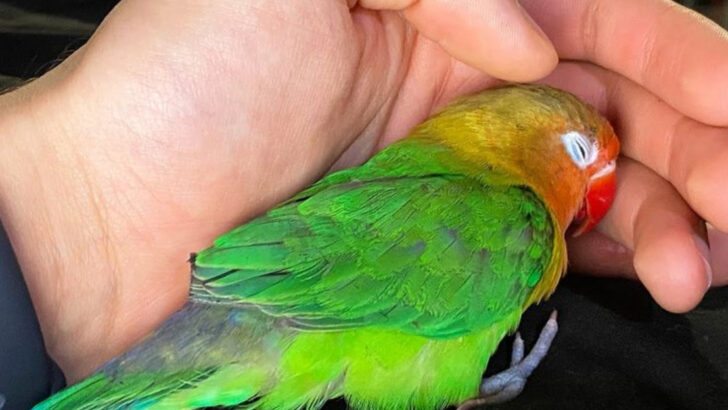Raising newborn lovebirds isn’t just a hobby—it’s a heart-melting adventure filled with tiny chirps, fluffy feathers, and a whole lot of responsibility.
These little bundles of energy may be small, but they have big needs. From delicate feedings to keeping them warm and comfortable, their first weeks are critical to their health and happiness.
Miss a step, and you could end up with a stressed, sickly chick—or worse. But don’t worry! With the right care, your baby lovebirds will grow into strong, affectionate companions who think you’re part of the flock.
Ready to give your feathered babies the best start in life? Here are 14 must-know tips to keep them healthy, thriving, and as happy as a lovebird can be!
Create a Safe Nesting Environment
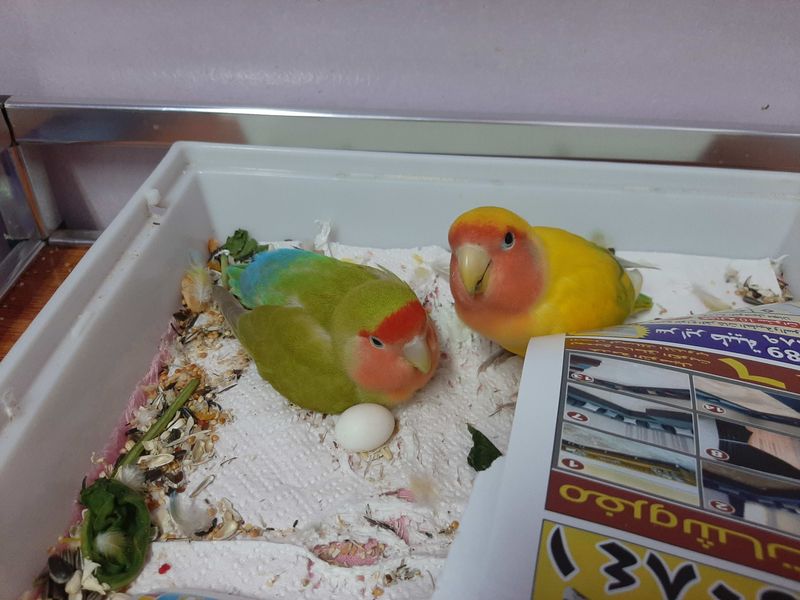
A safe nesting environment is crucial for newborn lovebirds. Begin by selecting a quiet and secure location in your home, away from drafts and direct sunlight. Equip the nesting area with soft bedding materials like shredded paper or natural fibers, ensuring comfort and warmth. Regularly check the nest for cleanliness, removing any waste or soiled materials promptly. In the first few weeks, maintain a consistent temperature to mimic the warmth of a mother’s embrace. A peaceful environment with gentle ambient lighting will help reduce stress and promote healthy development in your young lovebirds.
Provide Nutritious Food
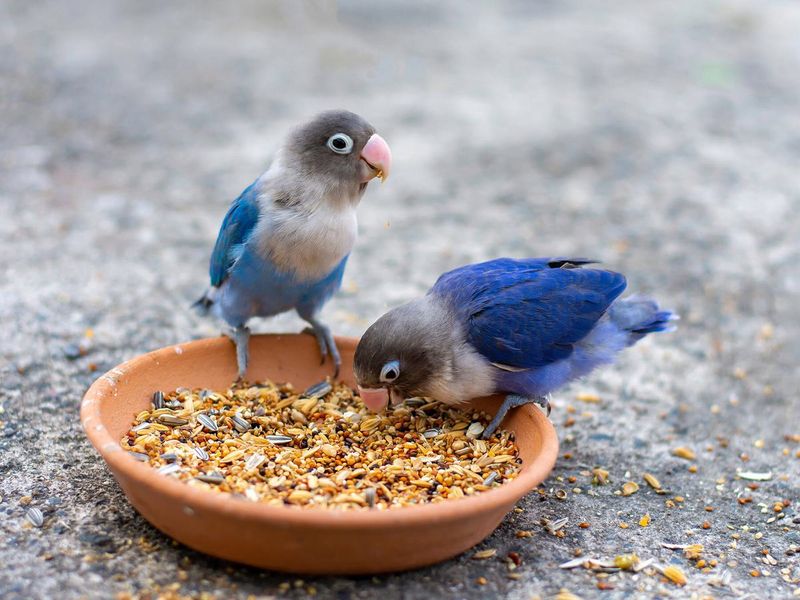
Nutrition plays a pivotal role in the growth of newborn lovebirds. Offer a balanced diet comprising grains, seeds, and fresh fruits, ensuring they receive essential vitamins and minerals. It’s advisable to consult with an avian vet to tailor the diet specific to your lovebird’s needs. Gradually introduce different textures and flavors to stimulate their taste buds and encourage healthy eating habits. Keep food bowls clean and replace with fresh offerings daily. Proper nutrition not only supports physical growth but also enhances the immune system, setting the foundation for a vibrant and healthy life.
Ensure Clean Water Supply
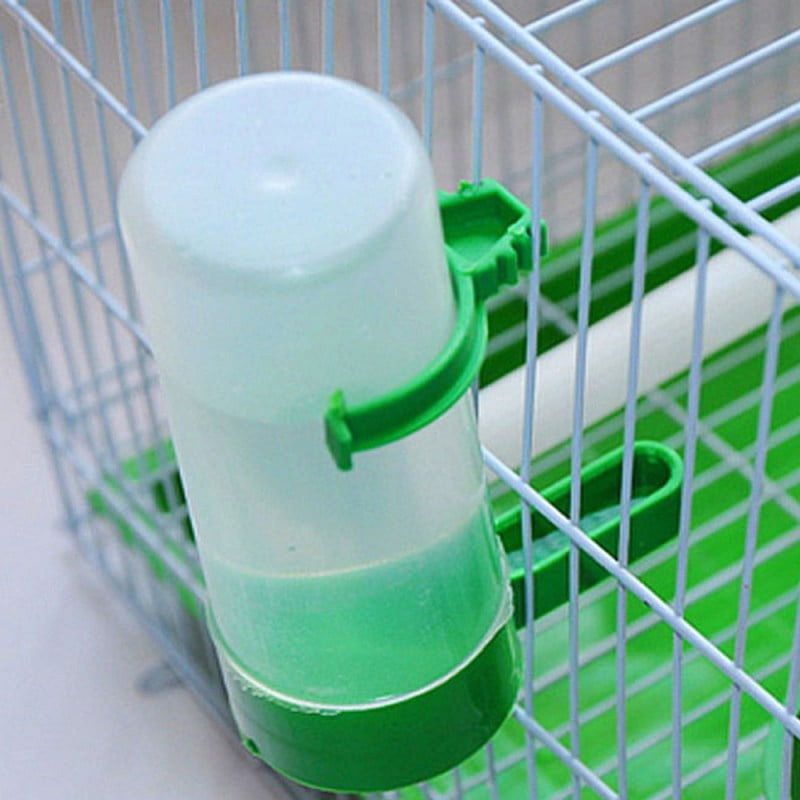
Clean water is vital for the hydration and well-being of newborn lovebirds. Provide a shallow dish of fresh water, positioned conveniently near their perch. Replace the water daily, ensuring it remains free from contaminants and bacteria. Observe their drinking habits to ensure they consume enough water for proper hydration. Avoid using deep containers that might pose a drowning risk. In warm weather, check the water more frequently to prevent evaporation. Adequate water intake supports digestion and overall health, helping your lovebirds thrive. Encourage drinking by gently demonstrating with a finger or small spoon.
Maintain Optimal Cage Temperature
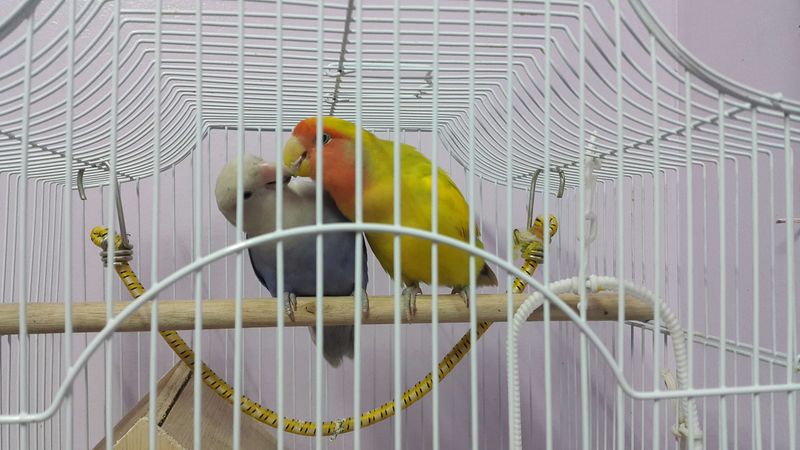
Temperature regulation is key to maintaining the health of newborn lovebirds. Aim to keep their cage at around 85 degrees Fahrenheit, providing a consistently warm environment. Avoid placing the cage near windows or air conditioners where temperatures can fluctuate. Use cage covers at night to retain warmth, mimicking the natural warmth of a nest. Monitor the temperature regularly with a reliable thermometer, adjusting as needed. Providing this stable climate fosters proper growth and prevents illnesses related to cold stress. A warm, cozy environment filled with soft toys can also provide additional comfort and security.
Practice Gentle Handling
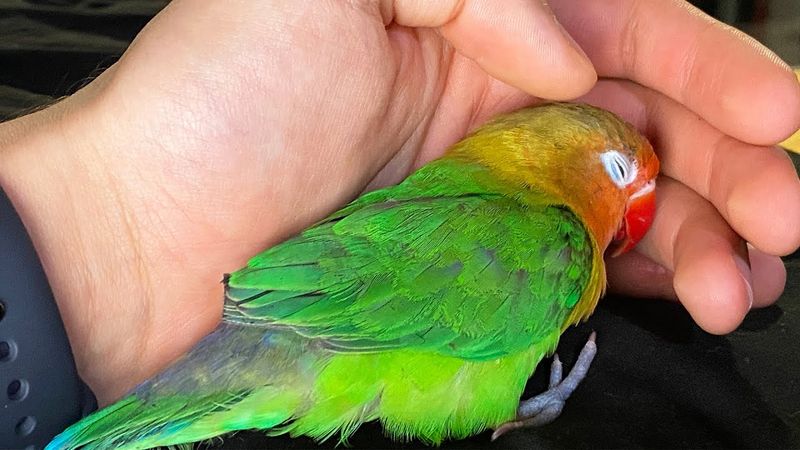
Handling newborn lovebirds gently is essential to building trust and socialization. Use soft, slow movements when picking them up, cradling them securely in your hands. Frequent gentle handling helps them become accustomed to human interaction, reducing fear and anxiety. Avoid loud noises or sudden gestures that might startle them. Respect their comfort levels, giving them time to adjust to your presence. Over time, your lovebirds will associate your touch with safety and affection, enhancing their emotional well-being. This practice also helps you bond with your feathered companions, creating a lifelong friendship.
Monitor Health Regularly
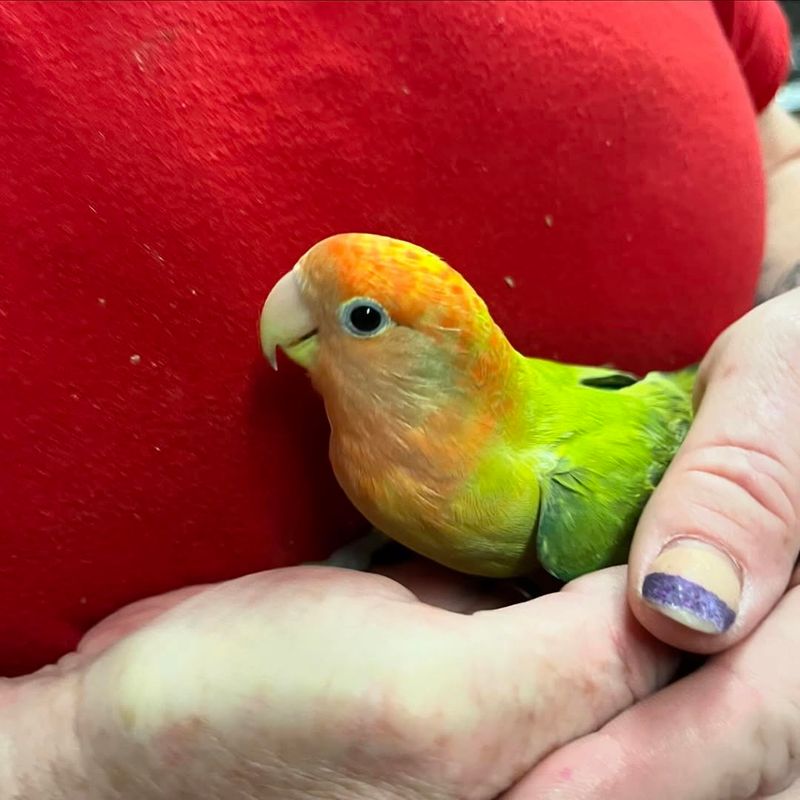
Regular health monitoring is vital for catching potential issues early. Schedule routine check-ups with an avian veterinarian to ensure your newborn lovebirds are developing properly. Observe their behavior daily for signs of discomfort or illness, such as lethargy or abnormal droppings. Pay attention to their plumage, beak, and claws, ensuring they are clean and well-maintained. If you notice any changes, consult a professional promptly. Keeping a health journal can help track their progress and identify patterns. Proactive health management not only ensures longevity but also contributes to a fulfilling and vibrant life for your birds.
Encourage Social Interaction
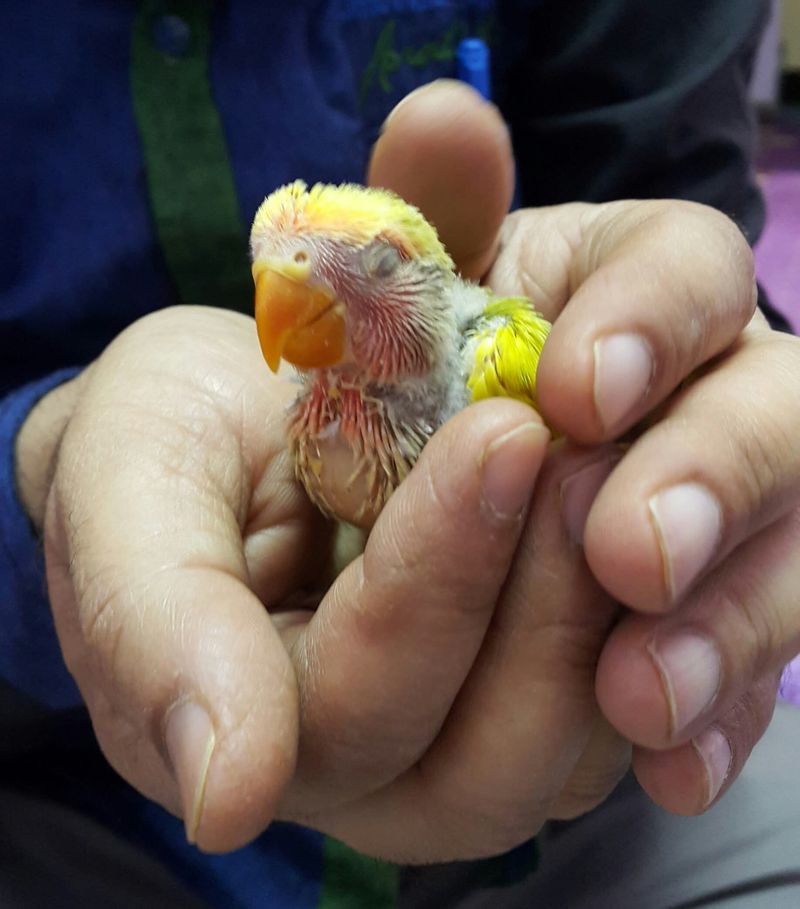
Social interaction is crucial for the emotional growth of lovebirds. Encourage them to engage with peers and humans by providing opportunities for play and interaction. Introduce colorful toys, mirrors, and perches to stimulate their minds and promote physical activity. Arrange playdates with other bird owners to help them develop social skills. Monitor these interactions to ensure they remain positive and stress-free. Socialization reduces loneliness and fosters a sense of community, contributing to happier and healthier birds. Engaging with your lovebirds daily strengthens your bond and allows them to thrive in a loving environment.
Provide Adequate Flight Space
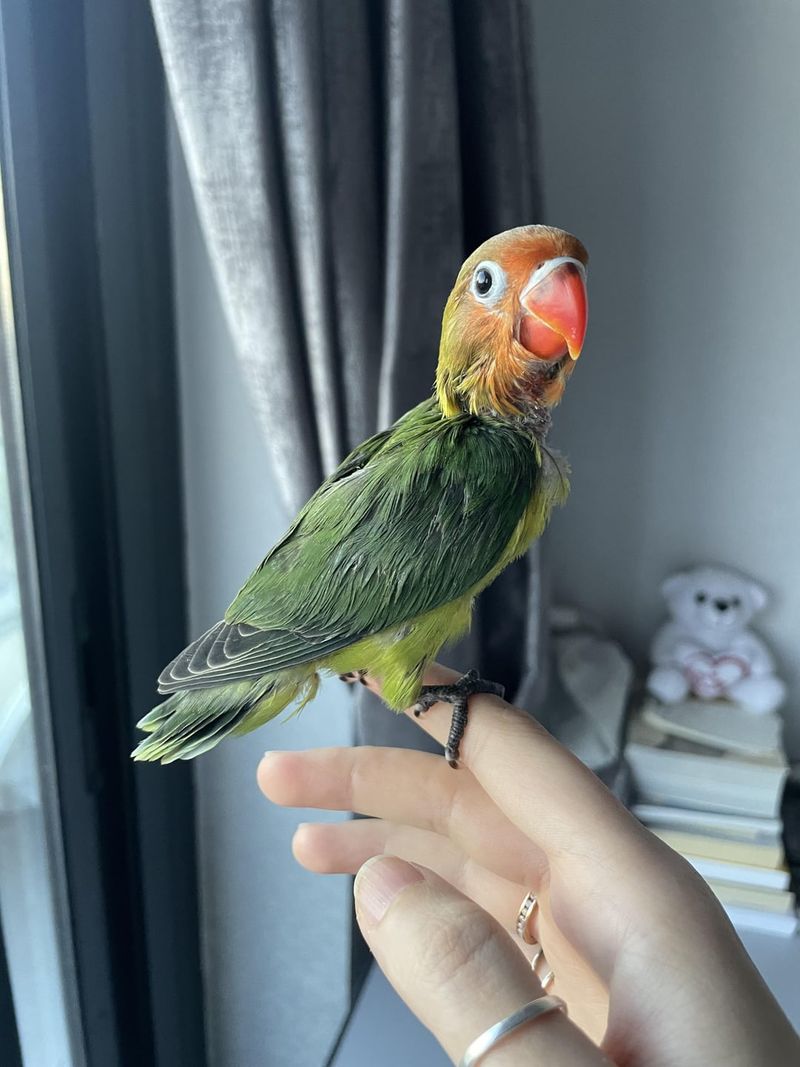
Adequate flight space is essential for the physical development of lovebirds. Invest in a spacious cage or aviary that allows them to spread their wings and fly comfortably. Incorporate natural branches and perches at varying heights to mimic their natural habitat. Encourage short flights within a safe indoor environment to build strength and coordination. Regular flying exercises not only boost physical fitness but also stimulate mental well-being. Ensure the area is free from hazards like open windows or sharp objects. Providing ample space for flight helps your lovebirds maintain healthy muscles and a joyful disposition.
Use Safe Cleaning Products
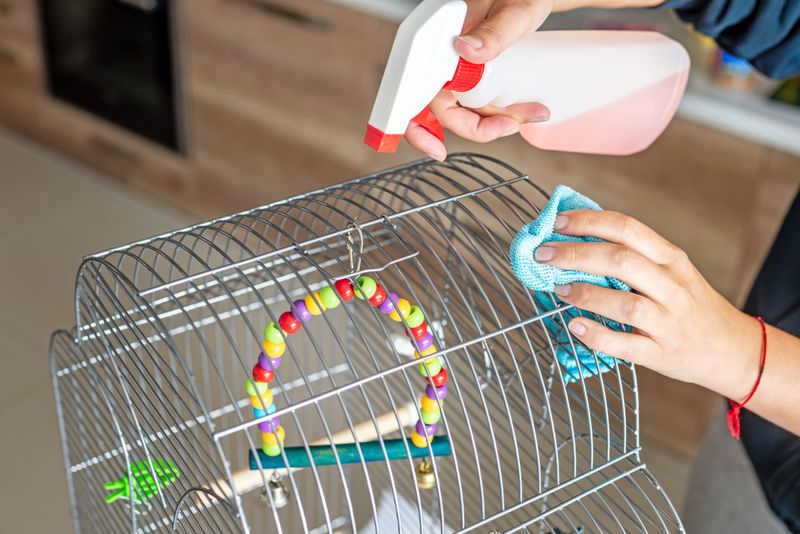
Keeping a clean environment is vital for the health of newborn lovebirds. Use bird-safe cleaning products to maintain hygiene in their living space, preventing exposure to harmful chemicals. Clean the cage regularly, including perches and toys, to eliminate bacteria and allergens. Always wear gloves to protect yourself and avoid introducing contaminants. Rinse all surfaces thoroughly to ensure no residue remains that could harm your birds. A clean habitat reduces the risk of disease and promotes a peaceful living environment. Regular cleaning routines are essential to providing a safe and supportive home for your lovebirds.
Establish a Routine
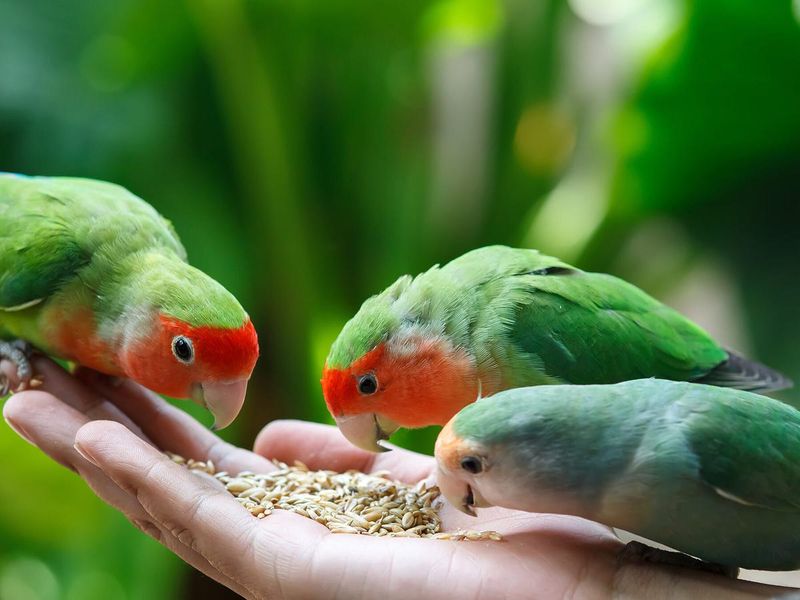
Establishing a routine is beneficial for the mental and physical health of lovebirds. Create a daily schedule that includes feeding, cleaning, and playtime to provide structure and consistency. Lovebirds thrive on predictability, which reduces stress and anxiety. Stick to regular feeding times and interact with them at set intervals throughout the day. Make time for quiet periods to allow them to rest and recharge. A well-structured routine builds trust and security, fostering a harmonious relationship between you and your feathered companions. Your lovebirds will feel more at ease and confident in a predictable environment.
Provide Mental Stimulation
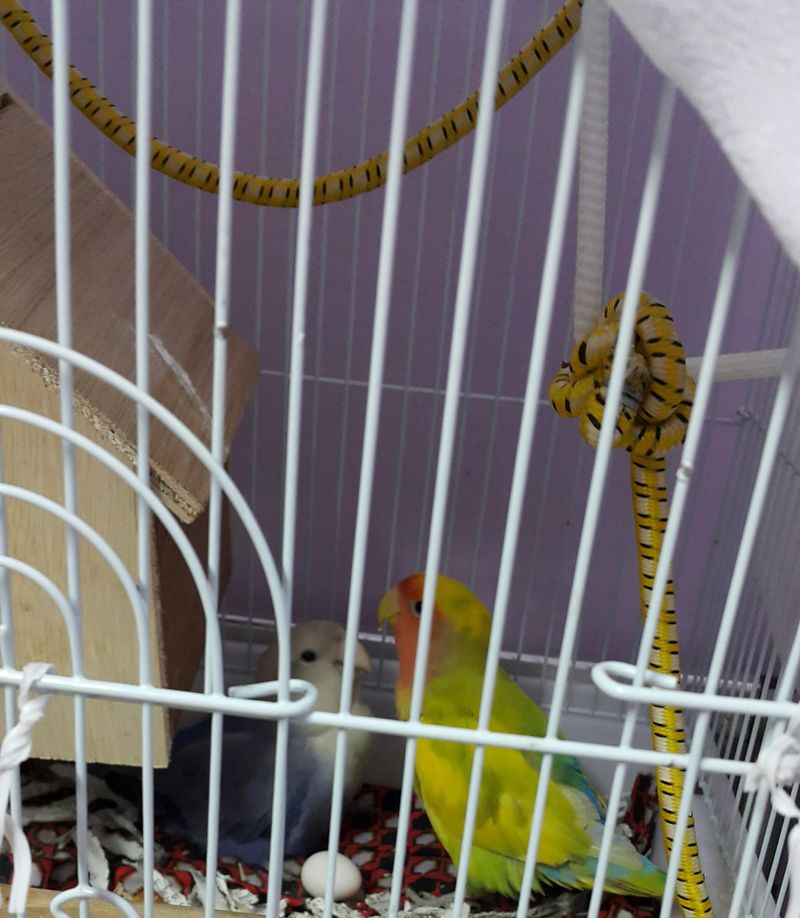
Mental stimulation is as important as physical care in raising healthy lovebirds. Offer a variety of interactive toys to challenge their intelligence and creativity. Rotate toys regularly to keep them engaged and curious. Puzzle feeders and foraging toys encourage problem-solving skills and provide enrichment. Spend time teaching simple tricks or commands to enhance their cognitive abilities. Mental stimulation helps prevent boredom and destructive behaviors, promoting a well-rounded personality. Lovebirds are intelligent creatures that thrive on new experiences and challenges, making mental engagement a key component of their overall well-being.
Foster Trust and Bonding
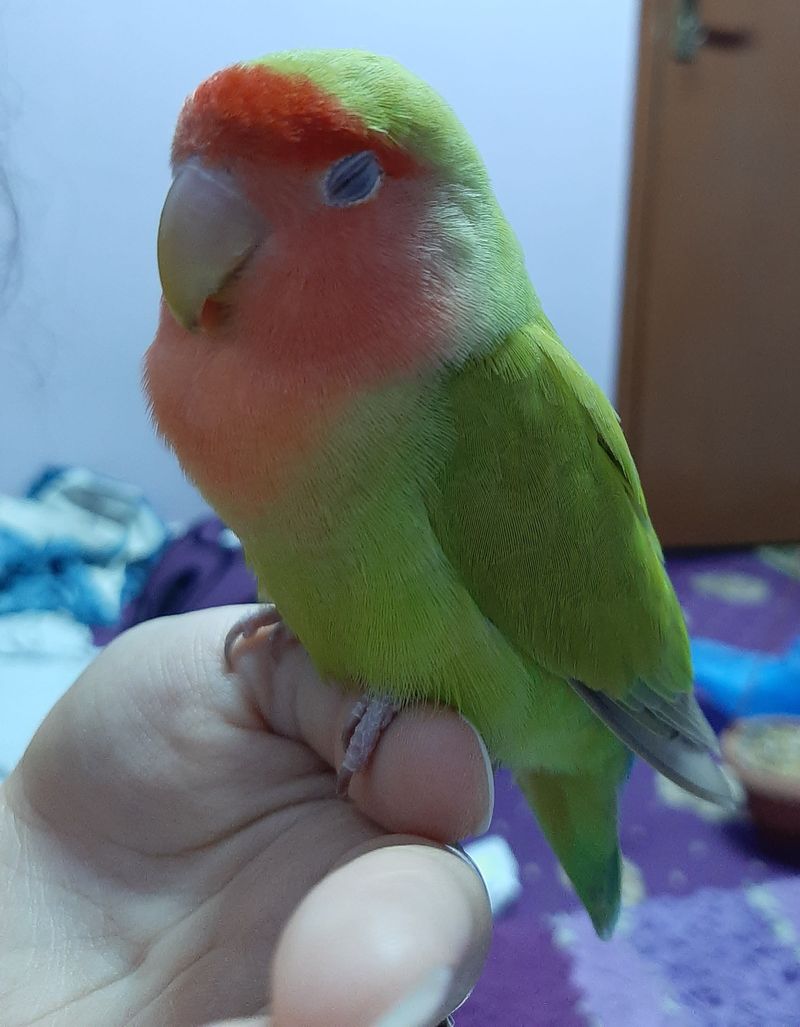
Fostering trust and bonding with your lovebirds is integral to their happiness. Spend quality time talking softly to them, encouraging interaction with gentle vocalizations. Offer treats from your hand to build trust and positive associations. Patience is key; allow your lovebirds to approach you at their own pace, respecting their comfort zones. Regularly engage in activities they enjoy, strengthening your relationship. A strong bond with your lovebirds not only enhances their emotional health but also enriches your experience as a bird owner. This mutual trust and affection create a nurturing and joyful environment.
Ensure Proper Lighting
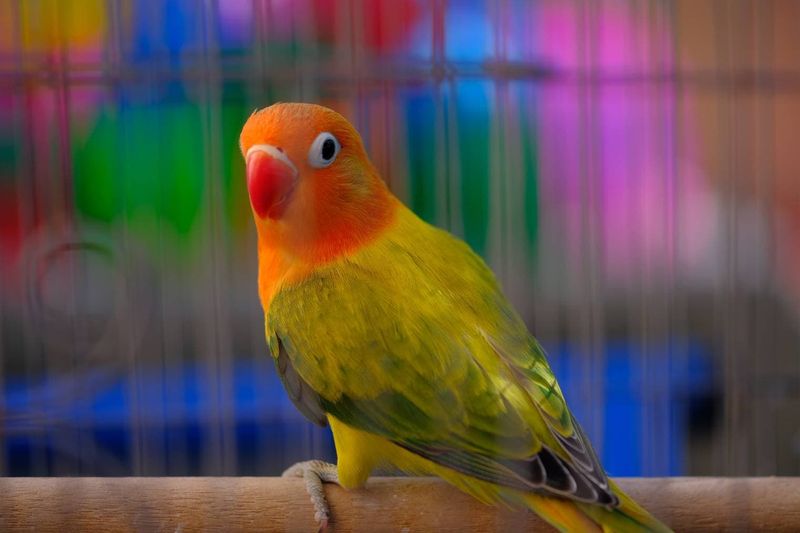
Proper lighting is essential for the health and happiness of lovebirds. Position their cage where they can enjoy natural sunlight, which aids in the synthesis of vitamin D. Ensure there are shaded areas in the cage to protect them from overheating. If natural light is scarce, use full-spectrum bird-safe lights to mimic the benefits of sunlight. Adjust lighting based on seasonal changes to maintain a natural day-night cycle. Proper lighting boosts mood and vitality, contributing to overall well-being. It’s an important aspect of creating a healthy and dynamic environment for your lovebirds.
Consult with Avian Experts
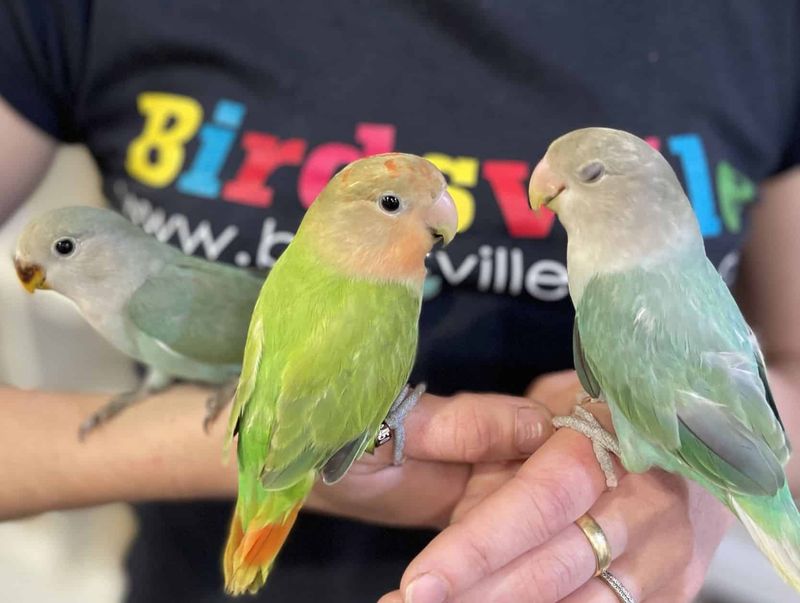
Consulting with avian experts can provide valuable insights into raising healthy lovebirds. Reach out to professionals for guidance on diet, behavior, and health care. Attend workshops or seminars to expand your knowledge and skills. Avian experts can offer personalized advice tailored to your specific situation, helping you make informed decisions. Building a network of experienced bird owners and professionals ensures you have support and resources when needed. This collaboration enhances your ability to provide the best care for your lovebirds, leading to a fulfilling and successful companionship. Expert advice is a treasure trove of wisdom for bird lovers.

